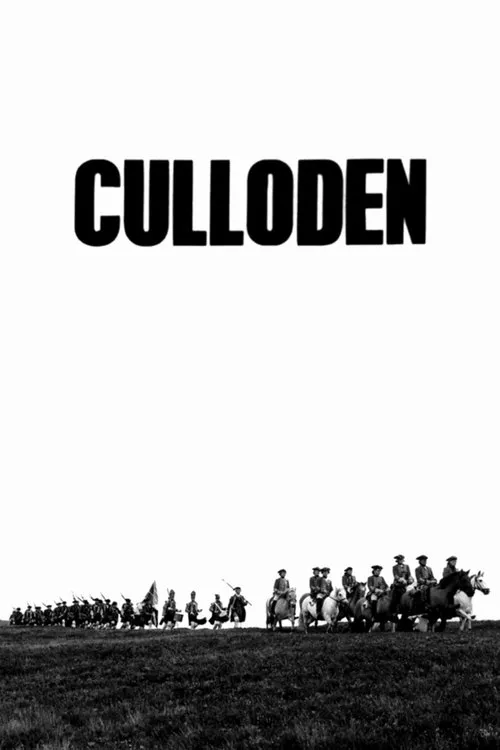Culloden

Plot
The battle-scarred moors of the Scottish Highlands loom large in this haunting drama, 'Culloden.' The film, directed by John McKay, is a poignant and gripping account of one of Great Britain's most infamous conflicts, a clash of two worlds that would leave an indelible mark on Scottish history. On April 16th, 1746, a small army of Scottish rebels, led by Charles Edward Stuart, also known as Bonnie Prince Charlie, stood against the might of the British Army, under the command of the Duke of Cumberland. The Jacobite forces, a mix of veterans and raw recruits, were determined to restore the exiled Stuart dynasty to power, while the British Army sought to quash the rebellion and maintain order in the Scottish Highlands. As the film opens, we see a sprawling landscape of rugged hills, mist-shrouded glens, and isolated hamlets, where the harsh realities of life in 18th-century Scotland unfold. We are introduced to a diverse array of characters, each with their own motivations and loyalties, as they navigate the treacherous waters of rebellion and conflict. Among them is Angus Mowbray, a young Jacobite soldier, played by Peter Wight, whose experiences serve as a proxy for the broader story. His brother, Jamie, a former soldier, had joined the fight against the British, and now, after learning of his death in the previous battle, Angus has taken up arms to avenge his brother's fate. Meanwhile, the Duke of Cumberland, portrayed by James McArdle, is depicted as a ruthless leader, driven by a desire to crush the rebellion and assert British authority over the Scottish Highlands. His military tactics are brutal and effective, employing the use of cavalry charges and scorched earth policies to break the spirits of the Jacobite forces. The conflict itself is a brutal and intense affair, with both sides suffering heavy losses. As the British Army gains the upper hand, the Jacobite forces are forced to retreat to the moors, where they are ultimately surrounded and slaughtered. The film's visceral and unflinching portrayal of this pivotal moment in history is both shocking and compelling, capturing the chaos and confusion that characterized the battle. However, the brutality of the conflict extends far beyond the battlefield. The film highlights the long-term consequences of the battle, as the Scottish Highlands are laid waste by the British Army, with many innocent men, women, and children rounded up and subjected to forced evictions, torture, and execution. As the aftermath of the battle unfolds, we see the devastating effects on the Jacobite families, who are left to pick up the pieces of their shattered lives. The trauma of the battle lingers on, as we witness the forced deportations, executions, and hangings that follow in the wake of the British Army's victory. Throughout the film, McKay weaves together a poignant tribute to the lives lost and the families shattered by the conflict. The film's narrative is interspersed with a series of testimonials from descendants of the Jacobite soldiers, whose voices serve as a powerful reminder of the enduring legacy of the battle. One of the film's most striking aspects is its use of atmospheric and evocative cinematography, which captures the breathtaking beauty of the Scottish Highlands, juxtaposed with the brutal and devastating consequences of the battle. The film's use of landscape and lighting is breathtaking, as McKay employs a palette of greens, browns, and greys to convey the harsh realities of life in 18th-century Scotland. Overall, 'Culloden' is a powerful and moving drama, a thought-provoking exploration of one of Great Britain's most infamous conflicts. With its unflinching portrayal of the brutal realities of war, the film serves as a poignant tribute to the lives lost and the families shattered by the conflict. As we witness the devastating consequences of the battle, we are reminded of the enduring legacy of the Jacobite rising and the profound impact that it had on Scottish history.
Reviews
Recommendations




